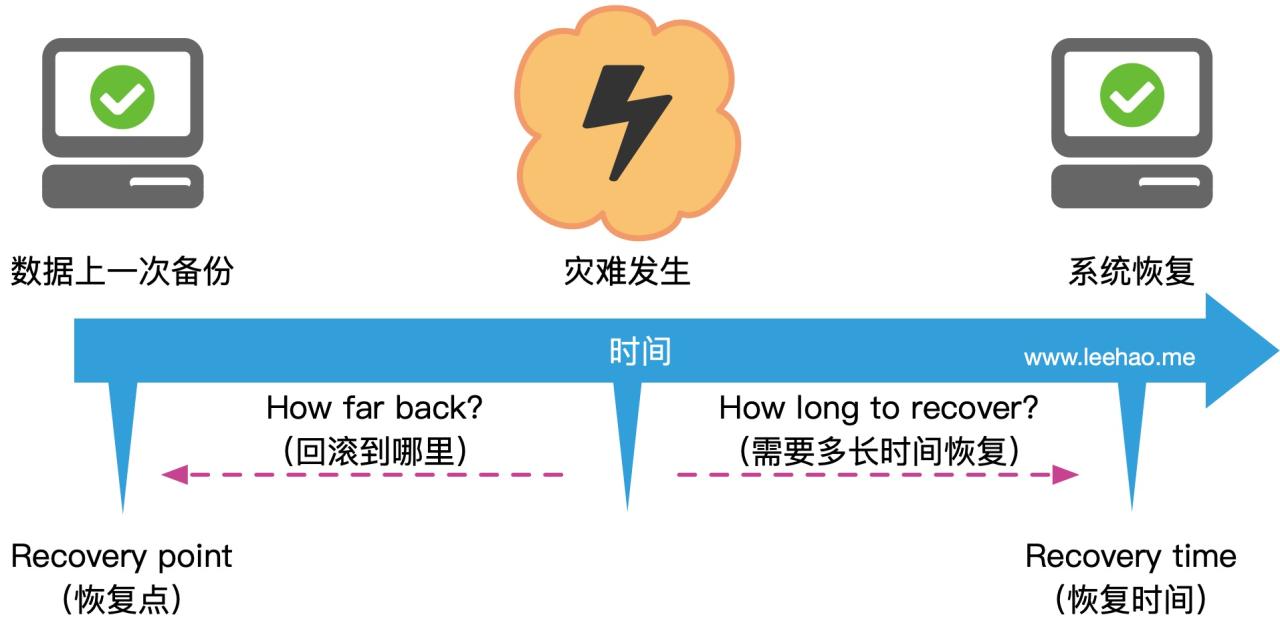Quantum computing, a revolutionary advancement in computing, promises to reshape industries by tackling problems beyond the capabilities of classical computers. This exploration delves into the practical applications of quantum computing within cloud environments, examining diverse use cases and the underlying infrastructure. We’ll investigate how cloud platforms facilitate access to powerful quantum resources and discuss the challenges and opportunities inherent in this emerging technology.
Cloud-based quantum computing offers unprecedented access to powerful resources, allowing researchers and businesses to experiment with quantum algorithms and explore their potential. This accessibility democratizes the field, fostering innovation and collaboration across various sectors. The article will cover a wide spectrum of applications, from financial modeling to drug discovery, while emphasizing the current limitations and future prospects.
Introduction to Quantum Computing in the Cloud
Quantum computing represents a paradigm shift in computation, harnessing the principles of quantum mechanics to solve problems intractable for even the most powerful classical computers. This innovative approach leverages quantum phenomena like superposition and entanglement to perform calculations in fundamentally different ways. Understanding these differences is crucial to appreciating the potential of quantum computing, particularly in cloud-based environments.Classical computers rely on bits, which can represent either a 0 or a 1.
Quantum computers, in contrast, use qubits, which can exist in a superposition of both 0 and 1 simultaneously. This superposition allows quantum computers to explore multiple possibilities concurrently, potentially leading to exponential speedups for certain types of problems. Entanglement, another quantum phenomenon, allows qubits to be linked in such a way that the state of one qubit instantaneously influences the state of another, regardless of the distance separating them.
This characteristic further enhances the computational power of quantum computers.Cloud-based quantum computing resources offer access to powerful quantum computers without the need for significant upfront investment in expensive hardware. These resources provide a flexible and scalable platform for researchers, developers, and businesses to explore the capabilities of quantum algorithms and applications. Cloud providers often offer various levels of access, ranging from interactive online environments for experimentation to dedicated resources for larger-scale computations.
Quantum Computing Platforms in the Cloud
Cloud platforms are rapidly emerging as crucial gateways to quantum computing. They offer access to advanced quantum hardware and resources, democratizing the field and allowing researchers and developers to experiment and explore quantum algorithms without significant upfront investments. The availability of these platforms in the cloud is driving innovation and accelerating the development of quantum applications.
| Provider | Type of Quantum Processor | Supported Algorithms | Pricing Models |
|---|---|---|---|
| IBM | Transmon superconducting qubits | Variational Quantum Eigensolver (VQE), Quantum Approximate Optimization Algorithm (QAOA) | Pay-as-you-go, dedicated access |
| Superconducting qubits | VQE, quantum simulation | Project-based, access through specific programs | |
| Rigetti | Superconducting qubits | Quantum machine learning, optimization | Pay-as-you-go, dedicated access |
| IonQ | Trapped ions | Variational algorithms, quantum simulation | Pay-as-you-go, dedicated access |
| Microsoft | Topological qubits | Fault-tolerant quantum computing | Project-based, access through specific programs |
Cloud-Based Quantum Algorithm Applications
Cloud platforms are rapidly becoming crucial for accessing and experimenting with quantum computing capabilities. This accessibility allows researchers and developers to explore the potential of quantum algorithms without the substantial investment required for on-premise quantum hardware. This section delves into specific quantum algorithms suitable for cloud implementation, highlighting their problem-solving capabilities and addressing the associated challenges.
Potential Quantum Algorithms for Cloud Implementation
A variety of quantum algorithms are well-suited for cloud-based implementation. These algorithms leverage quantum phenomena to tackle problems intractable for classical computers. Quantum algorithms, like Shor’s algorithm for integer factorization and Grover’s algorithm for search problems, demonstrate the potential for significant speedups over classical counterparts. These algorithms are crucial for exploring and developing applications across various domains.
Quantum Algorithm Use Cases
Cloud-based quantum computing platforms enable exploration of a wide range of applications. This section details potential use cases through a table showcasing the algorithms, the problems they solve, and the expected outcomes.
| Algorithm | Problem Solved | Expected Outcomes |
|---|---|---|
| Shor’s Algorithm | Factoring large numbers | Breaking current encryption methods, leading to the development of new, quantum-resistant cryptographic systems. |
| Grover’s Algorithm | Searching unsorted databases | Potentially enabling faster data retrieval in large datasets, with implications for drug discovery and materials science. |
| Quantum Machine Learning Algorithms | Feature extraction and classification | Potentially leading to improved accuracy and efficiency in machine learning tasks, such as pattern recognition and classification in complex data sets. |
| Quantum Simulation Algorithms | Modeling complex quantum systems | Accelerating the development of new materials, drug discovery, and understanding fundamental physics phenomena. |
Challenges and Limitations of Cloud-Based Quantum Algorithm Implementation
Implementing quantum algorithms on cloud platforms presents several challenges. Qubit coherence times are limited, requiring careful control and optimization of quantum circuits to mitigate errors. Quantum algorithms are often computationally intensive, demanding significant resources and time for execution. Furthermore, the development and optimization of quantum algorithms can be complex, requiring expertise in both classical and quantum computing.
Another key limitation is the need for specialized quantum programming languages and tools. Cloud platforms may offer these tools, but proficiency in these tools remains a barrier for many users. The current state of quantum hardware and algorithms, along with the need for robust error mitigation strategies, also impacts performance and reliability. Finally, cloud providers need to ensure the secure and reliable execution of sensitive quantum computations in the cloud environment.
Quantum Computing Use Cases in Specific Industries

Quantum computing, while still in its nascent stages, holds immense promise for transforming various industries by leveraging its unique capabilities to tackle complex problems that are intractable for classical computers. The cloud’s role in democratizing access to these powerful machines further accelerates this potential. This section explores the burgeoning use cases across diverse sectors, highlighting the potential for innovation and growth.
Finance
Quantum computing can revolutionize financial modeling and risk assessment. Algorithms designed for quantum computers can simulate complex financial markets with unprecedented accuracy. This allows for more precise valuations of assets, more accurate risk assessments for portfolios, and improved fraud detection. For example, quantum algorithms could simulate the behavior of large portfolios in various market scenarios, providing valuable insights for portfolio optimization and hedging strategies.
Furthermore, quantum computing could significantly accelerate the development of sophisticated financial instruments, enabling the creation of more efficient and innovative financial products.
Drug Discovery and Materials Science
Quantum computing offers a powerful tool for accelerating drug discovery and materials science research. The ability to simulate molecular interactions at an atomic level allows researchers to predict the behavior of molecules and materials under various conditions. This can significantly reduce the time and resources required for experimental testing, potentially leading to faster development of new drugs and materials.
For instance, simulating the interaction of a drug candidate with a target protein can identify promising drug candidates with improved efficacy and reduced side effects. Similarly, in materials science, quantum simulations can accelerate the design of new materials with tailored properties, such as stronger, lighter, or more conductive materials, opening up new possibilities in various industries.
Logistics and Supply Chains
Quantum computing can significantly enhance optimization problems in logistics and supply chains. Complex networks involving numerous variables, such as delivery routes, inventory management, and resource allocation, can be modeled and optimized more efficiently. Quantum algorithms can find optimal solutions for routing problems, warehouse layouts, and inventory control in a fraction of the time that classical algorithms require. For example, optimizing delivery routes to minimize transportation costs and delivery times while maintaining efficiency and meeting customer demands.
Quantum algorithms could also be used to optimize resource allocation in complex supply chains, leading to significant cost savings and improved efficiency.
Potential Impact Across Industries
| Industry | Potential Use Case | Current Limitations | Future Prospects |
|---|---|---|---|
| Finance | Advanced risk management, portfolio optimization, fraud detection | Limited access to quantum hardware, development of suitable algorithms | Significant improvements in financial modeling accuracy and efficiency |
| Drug Discovery | Accelerated drug discovery, improved drug design | Need for specialized algorithms, limited quantum hardware accessibility | Potential for faster and more cost-effective drug development |
| Materials Science | Designing new materials with tailored properties | Algorithm development for specific material properties, limited access to quantum hardware | Significant advancements in material science, leading to innovations in various sectors |
| Logistics | Optimized delivery routes, warehouse layout, inventory control | Development of algorithms for specific logistics problems, limited availability of suitable quantum hardware | Increased efficiency, cost savings, and improved supply chain management |
Quantum computing offers the potential to revolutionize industries by providing solutions to problems currently intractable for classical computers.
Cloud Infrastructure for Quantum Computing

Cloud platforms are increasingly crucial for enabling access to quantum computing resources. These platforms provide a flexible and scalable environment for researchers and developers to experiment with and utilize quantum algorithms, without the need for significant upfront investment in expensive quantum hardware. This infrastructure encompasses not only the physical quantum hardware but also the necessary software tools and control systems.The cloud infrastructure for quantum computing is designed to address the unique requirements of quantum algorithms, including the need for precise control of qubits, the susceptibility of quantum states to errors, and the computational demands of quantum simulations.
These requirements necessitate specialized hardware and software components that are integrated within the cloud environment. Consequently, the cloud becomes a pivotal hub for managing and maintaining these resources.
Unique Infrastructure Requirements
The unique demands of quantum computing necessitate specific infrastructure considerations. Quantum computers are highly sensitive to environmental noise and require extremely stable and controlled conditions. The need for specialized hardware and precise control systems for quantum operations is a defining characteristic of the infrastructure required.
Quantum Hardware and Software Components
Quantum hardware components, such as superconducting qubits or trapped ions, are crucial to the cloud infrastructure. The cloud platform must provide a means for researchers to access and control these quantum systems remotely. Furthermore, sophisticated software tools and libraries for quantum programming, including compilers and simulators, are essential for translating classical algorithms into quantum instructions. These tools are integrated within the cloud infrastructure, providing a seamless workflow.
Cloud Platform Management and Maintenance
Cloud platforms play a vital role in managing and maintaining quantum resources. This involves scheduling access to quantum hardware, managing the delicate balance of quantum error correction protocols, and monitoring the overall performance of the quantum systems. The platforms must provide mechanisms to ensure consistent performance and prevent errors in quantum computations. This is achieved by incorporating robust monitoring systems and automated error correction mechanisms.
Quantum Error Correction Approaches
Quantum error correction is a crucial aspect of cloud-based quantum computing. Various error correction techniques are employed to mitigate the effects of noise and maintain the integrity of quantum computations. These methods, like surface codes or topological codes, are implemented and managed within the cloud environment. Different cloud platforms might support various approaches to error correction, offering researchers a choice depending on the specific quantum algorithm or application.
- Surface Codes: These codes employ a grid-like arrangement of qubits to detect and correct errors. The approach leverages redundancy in the qubit arrangement to identify and rectify errors, maintaining the integrity of quantum computations. The implementation of these codes within a cloud environment requires robust error detection and correction protocols.
- Topological Codes: These codes utilize more complex, topological structures to achieve error correction. The inherent structure of these codes makes them more resilient to noise and errors compared to surface codes. Cloud platforms must integrate the specific hardware and software required to support the topological error correction process.
Data Management and Security in Cloud Quantum Computing
Cloud-based quantum computing presents exciting possibilities, but also introduces significant data management and security challenges. Protecting sensitive data and managing the vast quantities of data generated by quantum algorithms are crucial for the responsible and trustworthy deployment of these powerful technologies. This section explores the strategies and hurdles associated with these critical aspects.
Data Encryption and Access Control Strategies
Robust encryption and access control are paramount in quantum computing environments. Traditional encryption methods, while effective for classical data, may not be sufficient against potential quantum attacks. Quantum-resistant cryptography is emerging as a critical area of research, focusing on algorithms immune to attacks by quantum computers. These algorithms rely on mathematical problems considered intractable even for powerful quantum computers.
Implementations of these methods are evolving and should be carefully considered and implemented for data at rest and in transit. Access control mechanisms should also be tailored for quantum computing, ensuring only authorized users or processes can access specific data or perform particular computations.
Challenges of Managing Large Datasets
Quantum computations often generate massive datasets, posing significant challenges in storage, retrieval, and analysis. Efficient data management strategies are crucial to handle the volume, velocity, and variety of data generated. Techniques like data compression, distributed storage, and specialized data structures need careful consideration. Cloud providers are actively developing tools and infrastructure to address these data management challenges, offering scalable storage and processing solutions tailored to quantum computing workloads.
For example, cloud providers could leverage existing data management frameworks with extensions or adaptations for quantum data.
Importance of Secure Communication Protocols
Secure communication protocols are essential for cloud-based quantum interactions. Quantum key distribution (QKD) is a promising technology that leverages the principles of quantum mechanics to create and distribute cryptographic keys securely. These keys are virtually unbreakable by classical or quantum attacks, guaranteeing the confidentiality and integrity of communication channels. Implementing QKD protocols in quantum cloud environments requires specialized hardware and software.
Furthermore, the combination of traditional and quantum-resistant cryptographic methods is often necessary to create layered security, ensuring a secure communication channel.
Potential Security Vulnerabilities
Cloud quantum computing environments are not immune to potential security vulnerabilities. The use of shared resources and the complexity of quantum algorithms introduce new avenues for attacks. Malicious actors could potentially exploit vulnerabilities in the underlying cloud infrastructure or quantum algorithms themselves. Furthermore, the evolving nature of quantum computing, coupled with the development of new quantum algorithms, necessitates a proactive and dynamic approach to security.
Comparison of Security Measures
| Security Protocol | Strength | Potential Vulnerabilities | Mitigation Strategies |
|---|---|---|---|
| Traditional Encryption (e.g., AES) | Strong for classical data | Potentially vulnerable to quantum attacks (e.g., Shor’s algorithm) | Transition to quantum-resistant encryption, hybrid approaches |
| Quantum-Resistant Encryption (e.g., lattice-based cryptography) | Resistant to known quantum attacks | New attacks may emerge as quantum computing advances | Regular security audits, algorithm updates, and continuous monitoring |
| Quantum Key Distribution (QKD) | Unbreakable in principle (under specific conditions) | Limited range, need for specialized hardware, potential implementation vulnerabilities | Integration with existing communication protocols, error correction protocols |
| Access Control Lists (ACLs) | Controls access to resources | Vulnerable to unauthorized access if not properly configured | Regular access reviews, strict role-based access control |
Cost and Scalability Considerations

Cloud-based quantum computing, while promising transformative potential, presents unique cost and scalability challenges. Understanding these aspects is crucial for organizations contemplating adopting this emerging technology. The current cost structure, scalability methods, and potential optimization strategies must be evaluated alongside the specific needs and resources of each user.
Current Cost Structure for Cloud Quantum Computing Services
Quantum computing resources, unlike classical computing, are not universally standardized. Pricing models vary significantly across cloud providers, often based on factors such as the type of quantum processor used, the duration of the quantum job, and the complexity of the algorithm. These variables influence the overall cost, which may differ substantially from one provider to another.
Scalability of Cloud-Based Quantum Computing
Scaling quantum computing resources in the cloud requires addressing the unique challenges posed by the technology. Current quantum computers are not infinitely scalable. As computational needs increase, the required resources and their associated costs escalate. The scaling strategies employed by cloud providers typically involve offering diverse quantum processors with varying capabilities and performance levels. This enables users to select the most appropriate resource for their specific computational requirements.
Cost Optimization Strategies in Cloud Quantum Computing
Various strategies can optimize costs within the cloud quantum computing environment. One crucial approach is algorithm optimization. Efficient algorithms require fewer quantum resources, leading to reduced costs. Careful job scheduling and resource allocation also contribute to cost optimization. Users can potentially leverage cloud provider’s recommendations and best practices for optimal utilization of quantum hardware and software.
Furthermore, exploring and utilizing readily available quantum software development kits (SDKs) can significantly enhance the efficiency of algorithms.
Pricing Models Offered by Different Cloud Providers
Cloud providers employ different pricing models for their quantum computing services. A common model involves charging per quantum volume, reflecting the processor’s capacity. Another prevalent approach is charging per quantum operation, with pricing often tiered based on the complexity of the operation. Some providers may offer flexible packages, enabling users to tailor their resources to their needs.
| Cloud Provider | Pricing Model | Key Features |
|---|---|---|
| Provider A | Quantum Volume-based | Tiered pricing based on quantum volume. Provides access to various processor types. |
| Provider B | Per Quantum Operation | Precise pricing based on the number of operations performed. Offers various processor types. |
| Provider C | Flexible Package | Customizable packages to suit various needs. Potential for discounts with long-term commitments. |
Quantum Computing in the Cloud
Cloud-based quantum computing platforms are rapidly evolving, offering access to powerful quantum computers to researchers and developers. These platforms are crucial for advancing quantum algorithms and exploring practical applications, despite the significant challenges involved in managing and utilizing these complex systems. Early adopters are leveraging these resources to accelerate research and development in various sectors.
Current State of Cloud Quantum Computing Platforms
Quantum computing platforms in the cloud are currently in a nascent stage of development. While they provide access to quantum hardware, significant limitations remain regarding qubit quality, coherence times, and the overall complexity of the algorithms they can execute. The available qubits are often limited, and their reliability is not yet at the level needed for complex computations.
Different cloud providers are offering varying types of quantum computers, each with its specific architecture and capabilities.
Comparison of Cloud Quantum Computing Initiatives
Different cloud providers are making progress in various aspects of quantum computing. Some platforms emphasize specialized architectures designed for specific quantum algorithms. Others focus on providing comprehensive software development tools and environments for quantum programming. A comparison across different platforms reveals varying strengths and weaknesses in terms of qubit count, algorithm support, and user-friendly interfaces. No single platform currently dominates the market, and the landscape is constantly evolving.
For example, IBM’s Quantum Experience offers a wide range of simulators and real quantum processors, while Google’s quantum cloud platform emphasizes research collaboration.
Future Potential of Quantum Computing in the Cloud
The future potential of quantum computing in the cloud is substantial, particularly in specific domains. Quantum algorithms hold promise for solving complex problems currently intractable for classical computers. In the long term, quantum computers are anticipated to transform fields like materials science, drug discovery, and financial modeling. For example, in materials science, quantum simulations could help design new materials with tailored properties, potentially leading to breakthroughs in energy storage or medicine.
Real-world applications are still largely in the early stages of development.
Ongoing Research and Development Efforts
Ongoing research and development efforts in cloud-based quantum computing focus on several key areas. Efforts are being directed towards improving qubit stability, increasing coherence times, and enhancing the capabilities of quantum algorithms. Furthermore, researchers are exploring new quantum architectures and control techniques to address current limitations. These efforts are essential for scaling up quantum computing resources and making them more readily available for diverse applications.
New algorithms and software tools are also crucial for realizing the potential of quantum computing in a practical manner.
User Experience and Accessibility
Cloud quantum computing platforms strive to make complex quantum technologies accessible to a wider range of users, including those with limited prior quantum computing experience. This necessitates intuitive user interfaces, comprehensive training materials, and user-friendly tools for interacting with these powerful resources. Effective user experience is crucial for accelerating adoption and fostering innovation in the field.
User Interface Design for Cloud Quantum Resources
The user interface (UI) for cloud-based quantum computing platforms should be designed with usability in mind. A well-designed UI should present quantum computing resources in a clear and organized manner, guiding users through the process of creating and running quantum circuits. Visual representations of quantum circuits, intuitive controls for parameter adjustments, and clear feedback mechanisms for execution results are essential elements of a user-friendly UI.
Furthermore, the UI should be adaptable to various user skill levels, offering different levels of detail and control options. For instance, novice users may benefit from a simplified interface that focuses on basic quantum operations, while experienced users can access more advanced functionalities.
Methods for Providing Training and Support
Comprehensive training and support are vital for users to effectively leverage cloud quantum computing resources. These resources should include interactive tutorials, video demonstrations, and detailed documentation. Hands-on labs and workshops can offer practical experience in setting up and running quantum circuits. Online forums and dedicated support channels can allow users to ask questions, share experiences, and receive guidance from experts.
The availability of dedicated support personnel, such as technical experts and mentors, further enhances user support. Examples include interactive simulations, online courses, and community forums.
User-Friendly Programming Tools and APIs
User-friendly programming tools and APIs are critical for facilitating interaction with cloud quantum computing resources. High-level programming languages and visual quantum circuit designers can simplify the development process for users with limited quantum programming experience. These tools should provide clear documentation and extensive examples to guide users through the process of constructing quantum circuits and running them on cloud platforms.
Furthermore, APIs should offer a standardized and consistent interface for interacting with various quantum computing services, simplifying the integration process. For example, libraries built on top of Python can provide high-level functions for creating and manipulating quantum circuits.
Setting Up a Quantum Computing Account on a Cloud Platform
Setting up a quantum computing account on a cloud platform generally involves the following steps:
- Registration: Users typically need to create an account on the cloud platform’s website, providing required information like name, email address, and password.
- Verification: Verification steps may include confirming the email address to ensure account security and compliance.
- Resource Allocation: Users need to select the desired quantum computing resources, specifying the type of quantum processor, the number of qubits, and other relevant parameters.
- Project Creation: Users can create projects to organize their quantum computing tasks, potentially separating different projects for different purposes.
- Access and Authorization: Access to specific resources or tasks is controlled via authorization mechanisms, enabling users to manage permissions.
- Testing and Familiarization: Users should perform basic tests to familiarize themselves with the platform’s functionality and to understand the procedures involved in running quantum circuits.
Challenges and Limitations of Cloud Quantum Computing
Cloud quantum computing, while promising, faces significant hurdles that hinder its widespread adoption. These obstacles stem from the inherent nature of quantum mechanics, the current state of quantum hardware, and the complexities of algorithm development. Overcoming these challenges is crucial for realizing the full potential of this transformative technology.Quantum computers, unlike classical computers, operate on principles that require highly controlled environments to maintain their delicate quantum states.
This translates into unique technical difficulties in designing and maintaining the hardware, managing data within these systems, and ensuring the reliability of quantum computations.
Technical Obstacles in Widespread Adoption
Current quantum hardware suffers from significant limitations, including low qubit count, high error rates, and short coherence times. These factors constrain the size and complexity of problems that can be addressed. Qubit imperfections lead to errors in computations, requiring sophisticated error correction techniques, which themselves can be computationally intensive and resource-consuming. Furthermore, maintaining the delicate quantum states of qubits is difficult, requiring highly controlled environments that can be costly and challenging to scale.
Limitations of Current Quantum Hardware in the Cloud
Quantum hardware in the cloud environments is still in its early stages of development. Qubit counts remain relatively small compared to the potential computational demands of many applications. Error rates in quantum computations are often high, necessitating the use of error correction codes that further complicate computations and increase the time needed for computations. Maintaining the coherence time of qubits, the duration for which a quantum state can be maintained, is a significant challenge.
These limitations necessitate careful consideration of problem sizes and algorithm design when using cloud quantum resources.
Challenges Associated with Algorithm Development and Optimization
Developing efficient quantum algorithms for specific problems is a significant hurdle. Existing classical algorithms often need to be adapted or entirely new algorithms need to be designed for quantum computers. Furthermore, optimizing quantum algorithms for specific hardware architectures and minimizing error accumulation during computations requires specialized expertise. Translating classical algorithms into their quantum counterparts is not a straightforward process, and often involves significant research and development efforts.
There is a significant gap between the theoretical potential of quantum algorithms and their practical implementation on existing quantum hardware.
Need for Increased Collaboration Between Industry and Academia
The development of cloud quantum computing necessitates close collaboration between industry and academia. Academic researchers can provide cutting-edge theoretical insights and algorithms, while industry professionals can offer practical expertise in hardware development, software engineering, and application design. Joint projects, research collaborations, and knowledge sharing between these communities are crucial to accelerate the pace of innovation and address the multifaceted challenges of cloud quantum computing.
This interdisciplinary collaboration can foster a shared understanding of the challenges and limitations, leading to more effective strategies for overcoming them.
Ethical Implications and Societal Impact
Quantum computing in the cloud presents a powerful new technology, but its development and deployment must be approached with careful consideration of the ethical implications and potential societal impacts. This includes understanding the potential for misuse, ensuring equitable access, and addressing the broader implications for society as a whole. A responsible approach to the technology is essential to maximizing its benefits while mitigating potential harms.The rapid advancement of quantum computing raises complex questions about its impact on various aspects of society.
From intellectual property rights to national security concerns, the ethical considerations surrounding this technology require careful attention. The potential societal benefits, such as advancements in medicine, materials science, and artificial intelligence, must be weighed against the potential risks, such as job displacement or exacerbating existing inequalities.
Potential Misuse and Security Risks
The immense computational power of quantum computers poses significant security risks. Quantum algorithms can potentially break current encryption methods, jeopardizing sensitive data in various sectors, including finance, healthcare, and government. This necessitates the development of quantum-resistant cryptography to safeguard sensitive information. Protecting against malicious actors seeking to exploit quantum computing capabilities for illicit purposes is crucial.
Equity and Access to Quantum Computing Resources
Ensuring equitable access to cloud-based quantum computing resources is paramount. The high cost of hardware and expertise could create a digital divide, potentially limiting access for smaller research institutions, startups, and developing countries. Strategies to democratize access, such as cloud platforms with tiered pricing models and educational initiatives, are vital to realizing the full potential of quantum computing for the benefit of all.
Impact on Employment and the Workforce
Quantum computing is expected to transform industries in significant ways, potentially leading to job displacement in some sectors. Simultaneously, it will create new jobs and opportunities in areas like quantum software development, algorithm design, and maintenance. Careful planning and proactive measures are required to adapt to the changing job market, including retraining programs and upskilling initiatives. The impact on specific industries, such as manufacturing and finance, requires in-depth analysis.
Potential for Bias and Discrimination in Quantum Algorithms
Quantum algorithms, like classical algorithms, can inherit and amplify existing biases present in the data they are trained on. If not carefully designed and validated, these biases can perpetuate or even exacerbate existing societal inequalities in areas such as loan applications, criminal justice, and healthcare. Careful attention to algorithm design, data collection practices, and continuous monitoring is necessary to prevent and mitigate such biases.
The Role of Regulation and Policy
The rapid advancement of quantum computing necessitates a proactive approach to regulation and policy development. International collaborations and standardized protocols are crucial to address the ethical and societal challenges associated with this technology. This includes creating guidelines for the development, deployment, and use of quantum algorithms to ensure responsible innovation.
Ultimate Conclusion
In conclusion, cloud-based quantum computing is poised to revolutionize industries. While challenges remain in terms of hardware limitations, algorithm development, and cost-effectiveness, the potential benefits are immense. From enhanced financial modeling to breakthroughs in materials science, quantum computing’s role in the cloud is set to expand rapidly. The future holds exciting possibilities as research and development continue, promising greater accessibility and improved applications for this transformative technology.
FAQs
What are the specific types of quantum processors available on cloud platforms?
Different cloud providers offer various types of quantum processors, including superconducting qubits, trapped ions, and photonic qubits. The choice depends on the specific algorithm and desired level of performance.
What are the primary security concerns when dealing with quantum computing in the cloud?
Security concerns include data encryption, access control, and secure communication protocols. Robust security measures are essential to protect sensitive data during quantum computations and cloud interactions.
How can the cost of cloud quantum computing be optimized?
Cloud providers offer various pricing models, and users can optimize costs through careful algorithm selection, efficient resource utilization, and leveraging cloud provider-specific discounts or packages.
What are the current limitations in quantum hardware that affect cloud implementation?
Current quantum hardware suffers from issues such as qubit coherence times, error rates, and scalability. These limitations impact the accuracy and reliability of quantum computations in cloud environments.


